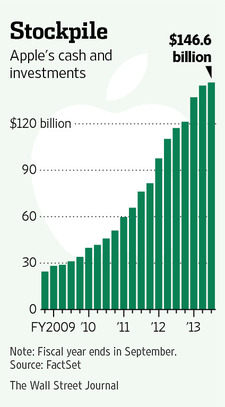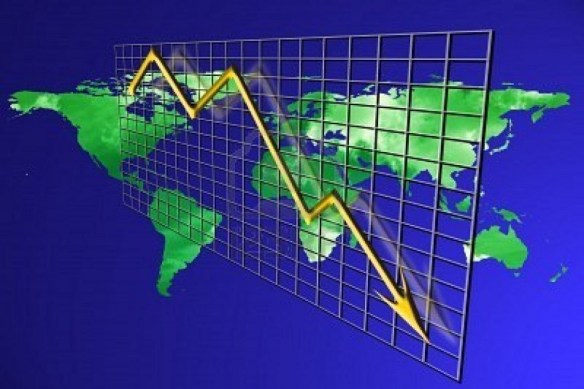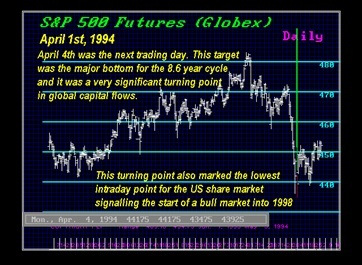Stocks & Equities
Activist investor Victor Alboini has made a number of mistakes in his career. He has been on the wrong side of securities regulators and the investment industry’s regulatory body. But even his detractors on Bay Street should give the man some credit.
It was Mr. Alboini, the chief executive officer of Jaguar Financial Corp., who said in 2011 that BlackBerry Ltd. – then known as Research In Motion Ltd. – should put itself up for sale. He argued that the company would never shine brighter than when it was still promising to reinvent the smartphone, and that its prospects would likely fade once consumers and business users actually got to see its new devices. He was right. While the new BlackBerry 10 phones have received decent reviews in the specialized press, they have barely moved the needle for the Waterloo, Ont., company that bears its name.
Three busy open houses over Mother’s Day weekend and a steady stream of visitors with mid-week showings confirmed its popularity among buyers, four of which vied to produce the highest offer.
MORE RELATED TO THIS STORY

Paulson raises offer to $40/shr from $38
Offer values company at $512 million
Shares rise to $40.41 in premarket trading
Steinway says merger agreement does not provide for go-shop period
Aug 14 (Reuters) – Steinway Musical Instruments Inc, best known for its grand pianos, said it would be taken private by Paulson & Co Inc after the hedge fund firm raised its offer to $40 per share, valuing the 160-year old company at about $512 million.
Steinway’s shares rose to $40.41 in premarket trade, suggesting some investors expect a higher offer.
The company said on Monday it had received a bid of $38 per share from an unidentified asset manager that topped an offer of $35 per share from Kohlberg & Co. A source identified the new bidder as John Paulson’s hedge fund firm.
….read more HERE

“This is a no-brainer to go buy stock in a company that can go borrow” at a low rate, Mr. Icahn said in an interview. “Buy the company here and even without earnings growth, we think it ought to be worth $625,” he said, referring to the stock price, which closed Tuesday at $489.57, having risen 5% on the news of Mr. Icahn’s investment.
much more at Wall Street Journal HERE
Apple’s Stockpile:
 Wa
Wa

Are You Prepared For a Market Meltdown?
The markets are skating on very thin ice.
Stocks have hit new all time highs, but the ugly realities beneath this move in the markets have got many of the world’s most elite investors scared stiff.
Consider the following.
- Warren Buffett, arguably the greatest investing legend of the last 100 years has dumped many of his consumer discretionary holdings and is sitting on the single largest cash hoard of his entre career (he definitely doesn’t think it’s time to buy).
- Stanley Druckenmiller, investing legend, and former partner of George Soros has closed his hedge fund stating “…I see a storm coming. Maybe bigger than the storm we had in 2008 to 2010…”
- Jim Rogers, famed investor who made so much money that he retired at the ripe age o has warned that 2013 will be a disaster “… if you are not worried about 2013, please, get worried”
These guys have collectively made billions from investing. And they’re all terrified by what’s happening in the economy and the markets today.
It’s not difficult to see why.
Japan’s bond market is on the verge of imploding. Remember the impact Greece had on the markets? Well Greece’s bond market was just $450 billion. Japan in contrast has a bond market is over $7 TRILLION in size.
Europe is facing the single longest recession in its history. Youth unemployment is over 50% in some EU nations and total unemployment is nearly 20%.
And then there’s the US where 76% of Americans are living paycheck to paycheck with little to no emergency savings. And nearly 30% had NO SAVINGS AT ALL.
More on Japan: The Smart Money Is Leaving the Building
Japan continues to dominate the economic news. The latest move concerns Prime Minister Abe’s new economic policies to cut corporate taxes. He also announced plans to run a shakeup at Japan’s political ministries.
This is “Plan B” for Abe who has found that his policy of “Abenomics” or pushing the Bank of Japan to print even moremoney has failed to stimulate Japan’s economy.
Abe won in a landslide last September on his platform of urging the Bank of Japan to do more. This platform ignored the failure of QE to stimulate growth in Japan in the previous 20 years (Japan had already engaged in QE programs equal to 25% of the country’s GDP). It also ignored the risks of unfettered money printing, namely higher inflation.
Sadly, Abe has discovered that ignoring both of these key issues, while good politically, has been disastrous economically. Abe won the election and the Bank of Japan announced a record $1.4 trillion QE effort in April 2013. To put this number into perspective, this would be the equivalent of Ben Bernanke announcing a $3.75 trillion QE plan in the US. Suffice to say it was a “shock and awe” move.
Unfortunately, it hasn’t worked. Japan’s industrial production fell3.3% month over month in June. At the same time, Japan’s consumer price index registered its first increase in 14 months in June. The pace of increase was the fastest since 2008 when commodity prices were at record highs.
In plain terms, the Japanese economy is failing to respond to Abenomics. This is the single most important issue for the global financial system today.
The economy and financial markets have been moving in a zig-zag pattern ever since 2008 with drops in asset prices and GDP being met by intervention and stimulus by the world’s Central Banks.
However, thus far no Central Bank has gone “all in” with QE. The larger efforts have been focused on specific timelines (six months to a year) and the ongoing efforts have been tied to economic developments (the Fed claims it will taper QE when US employment falls to an acceptable level).
Never before has a Central Bank stated point blank that it’s firing a bazooka at the economy. Japan has done this. It has failed. And this failure has effectively been the “Emperor has no clothes” moment for Central Bank interventions.
And the markets are taking note.
Traders and investors do not respond to sea changes instantly. The smart ones take note and begin adjusting their portfolios and hedging their bets. This doesn’t result in massive market moves as these investors are sophisticated enough to move out of old positions and into new ones without drawing too much attention
It’s only when the investment herd en masse realizes that something has changed that you begin to see market Crashes.
This process has begun in the world. The smart money is leaving the market. And the market rally is being driven by fewer and fewer companies. This is classic Bubble Topping signals.
This is not to say that the market will crash tomorrow. But the sea change has hit and it’s now a matter of time. The likelihood of a full-scale market Crash similar to 1987 occurring in the coming months has increased dramatically.
If you have not taken steps to prepare for a market collapse, we have a FREE Special Report that outlines how to prepare your portfolio. To pick up a copy, swing by:
http://gainspainscapital.com/protect-your-portfolio/
Best Regards
Graham Summers
Chief Market Strategist
Phoenix Capital Research




Emerging Markets Decline as America Leads Growth

The US Economy is emerging as the center of economic growth in the world. US growth in the latest readings shows an annual 1.7% growth rate while Japan’s economy advanced at 2.6% due to the decline in the yen as Investors in Emerging Markets have seen things get much worse right down to rising civil unrest in Brazil. Euro may show some moderate growth only due to the decline in the euro last quarter.

The developed world accounts for more growth in the $74 trillion global economy than the developing world this is similar to the position in 1994.25 when the US began to rise drawing in capital that ultimately led to the Asian Currency Crisis in 1997. The stars are in the right position for a strong US equity rally into 2015.75.
….also from Martin:
The financial system as we knew it is changing. It will no longer be the same and the days of proprietary trading are numbered. Their cycle of proprietary trading has come to an end and going forward, we will see how hard these banker will fall. This reminds me of Margaret Thatcher who had an instinctive gut feeling about cycles when she told me John Major and the conservatives would lose power long before there were any polls. She said to me when I asked her why: “It’s just Time”.
….read the whole article HERE












